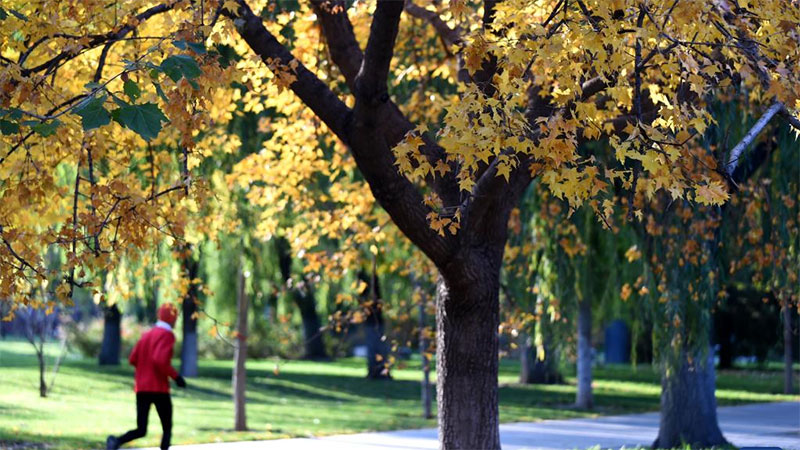U.S. recession looms as Fed continues to raise rates
WASHINGTON, Nov. 6 (Xinhua) -- A recession looms over the United States, as the Federal Reserve continues its rate-boosting campaign.
The U.S. Federal Reserve implemented on Wednesday a fourth consecutive three-quarter point interest rate hike, amid the worst inflation in 40 years.
Job openings abound and unemployment is low. But economists predict the possibility of a recession next year, particularly if Fed continues to boost rates at such an aggressive pace.
A strong jobs report published Friday underscored the problem. Robust job growth numbers "heighten the chances that next year the U.S. will have a hard economic landing in the form of a nasty recession," Desmond Lachman, senior fellow at the American Enterprise Institute, told Xinhua.
That's because the more job growth there is, the more the Fed needs to raise rates, in a bid to slow inflation and, along with it, the economy.
The Fed will do so even at a time when cracks are emerging in the U.S. and world financial system and when the U.S. housing market already appears to have entered recession, Lachman said.
"To get inflation down, the Fed will somehow have to get wages to increase at a slower pace than they are now increasing which all too likely means that the U.S. will be forced into a recession," Lachman said.
To be sure, rate raises will put a dent in consumers' wallets in one way or another, such as making it more costly for Americans to pay off debt or obtain a mortgage.
But despite so many rate boosts, inflation continues to surge, suggesting there is a long way to go before prices stabilize and the United States sees the 2 percent inflation that is considered acceptable.
Indeed, the current inflation rate is soaring high above that benchmark.
The widely-watched consumer price index showed that September's inflation dropped slightly to 8.2 percent on an annual basis, but climbed by 0.4 percent month-to-month.
Meanwhile, calls from lawmakers are growing for Fed to stop its rate increases, as critics fret that it could spark a recession. Critics note that while prices are high, at least there are jobs. What will happen in a scenario where there are far fewer jobs and prices have not yet lowered to acceptable levels? That's a recipe for "stagflation," or a stagnant economy with high inflation, economists said.
The Fed has not given any indication it would reverse course.
Both inflation and fears of a recession have hit the U.S. stock market hard in recent months, with the Dow Jones Industrial Average down over 4,000 points year to date. Investors are steering clear of the stock market. And while there have been moments of rebound, markets remain volatile.
Photos
Related Stories
- Fed's six consecutive rate hikes could further drag on U.S., world economy
- Economists voice concerns over U.S. Fed's aggressive rate hikes
- Experts downplay impact of Fed hike
- U.S. Fed implements fourth consecutive 0.75-point hike
- Questions raised about Fed's interest rate hikes to tackle inflation: report
- With Fed's policy spillovers raising concern, global economy may slip into recession
Copyright © 2022 People's Daily Online. All Rights Reserved.









